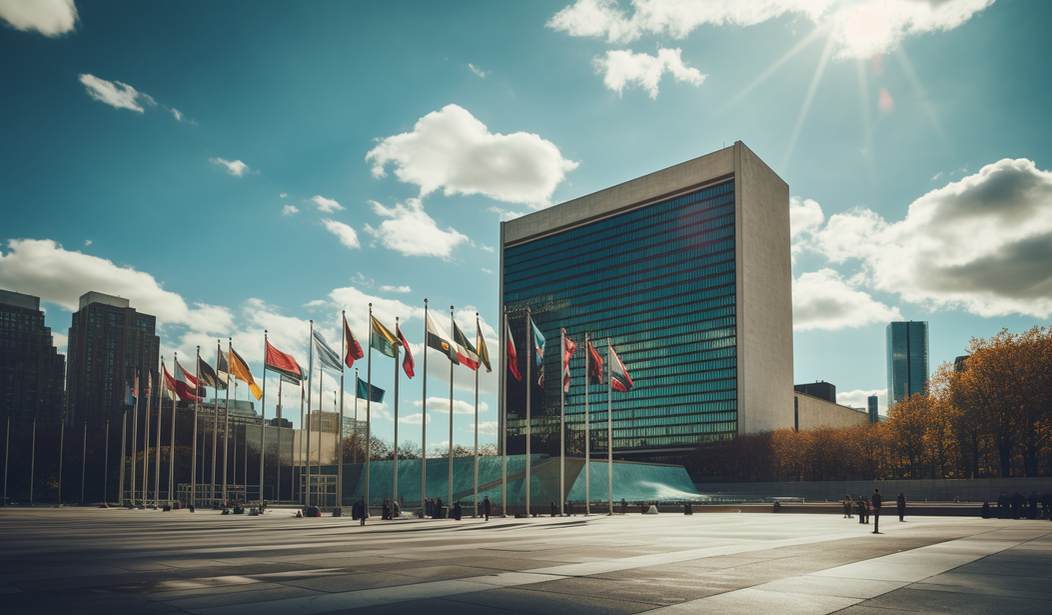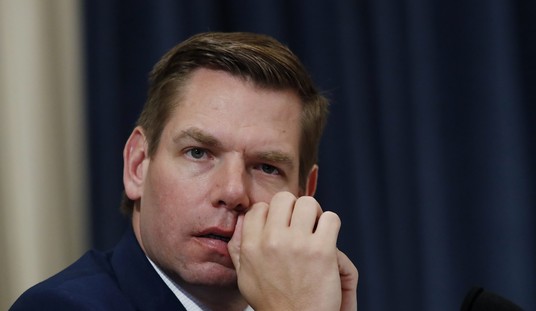This just in: Despite what the New York Times thinks, climate science isn't the law. Not here in the United States, anyway. We have this thing called the United States Constitution that overrides other considerations.
All of this starts with (of course) the United Nations, its International Court of Justice (ICJ), and its notion that anthropogenic climate change is "settled science." It's not; science is never settled, although some things are pretty obviously factual (gravity) as opposed to not-that-well understood (global climate). But this "landmark legal ruling" isn't all the New York Times makes it out to be.
The Empowerment Alliance's Gary Abernathy has more.
While not everyone is on board with President Trump’s “America First” philosophy, its importance when it comes to energy is brought into sharp focus when considering where the U.S. would be if it capitulated to the whims of global organizations like the United Nations or obeyed the verdicts of world courts.
The frightening attitudes of believers in global rule were recently on display courtesy of a New York Times opinion piece headlined “Climate Science is Now the Law,” penned by three writers who are all part of something called the Center for International Environmental Law. In their article, the authors claim, “The science on climate change has long been settled. Now the law is, too.”
How did this phenomenon occur? The writers inform us that the International Court of Justice – the judicial branch of the United Nations – has ruled on a petition from “the South Pacific archipelago nation of Vanuatu and other climate-vulnerable countries, with the help of Pacific Island students” who “secured” a U.N. resolution asking the court “to clarify what existing international law requires governments to do about climate change and what legal consequences they face if their failure to uphold the law causes serious harm.”
Here's the thing: In 1986, almost 40 years ago, the United States withdrew from the ICJ's "Compulsory Jurisdiction provision" (meaning that the United States agreed, according to treaties and/or agreements that may apply, to automatically submit legal disputes to the ICJ). Our participation in this, of course, is only to the extent to which it complies with the United States Constitution, which no statute, treaty, agreement, or decision by any international court may override.
See, the Founders really did know what they were doing when they penned the United States Constitution. They may not have foreseen the United Nations or irrational people screeching about climate change, but the Constitution still works, and it's still the highest law in the land.
The result? Not a surprise. The court ruled that “countries must protect citizens from the ‘urgent and existential threat’ of climate change. When a country fails to curb greenhouse gas emissions — whether by producing or consuming fossil fuels, approving new exploration to find them or subsidizing the industry — it may be held liable for ‘an internationally wrongful act,’ the court’s 15 judges said.”
The authors conclude, “This makes it much harder for any government or company to say that rules don’t apply to them or they don’t have to act. … It is a cease-and-desist notice to fossil fuel producers.” So there!
One can easily imagine the Biden administration subjugating itself to the international judiciary. Fortunately, the Trump administration – remembering that little document called the U.S. Constitution – treats rulings from international courts with the same level of respect paid to “Do Not Remove” tags on couch cushions.
That's as it should be.
The United Nations, as I've been saying and writing for years, is an organization that is well past its sell-by date. The International Court of Justice has no power over the United States. The New York Times authors are just simply wrong; this is not and can not be any form of "cease-and-desist" to fossil fuel producers, and if you doubt that, look at all the permitting and re-opening of energy resources the United States is doing right now.
Read More: Energy Interference: China Is Bankrolling American Climate Scolds
They Just Don't Get It - Another Climate 'Expert,' Same Bad Message
The New York Times piece concludes:
No ruling on its own can bring the fossil fuel era to its end; rather, it is the people who use it — in litigation, legislation and negotiations worldwide — who will give it teeth and make its conclusions impossible to ignore.
Now that the court has spoken, the real work begins. Fossil fuel polluters must hear the message loud and clear, in courtrooms and in boardrooms, from town halls to city streets: Cease and desist, pay up and phase out. Unless we hold big polluters to account, the unjust toll of climate change will only mount.
Pure corral litter, suitable only for enriching lawns and fertilizing row crops. The United States will not be compelled to any action by this ruling. The International Court of Justice, the entire United Nations, and the New York Times can shout about this until their eyes bleed, but the United States is under no obligation to abide by this, nor should we. The order of the day now is American energy independence, the word given is "drill, baby, drill," and the International Court of Justice may be cordially invited to go pound sand.















